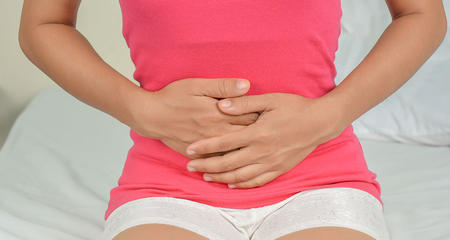The Women’s Incontinence and Sexual Health Program provides diagnosis and treatment for a wide range of disorders. These include:
- Incontinence — an involuntary leakage of urine or feces
- Voiding function disorders — disorders involving urine storage or release, resulting in incontinence or incomplete emptying of the bladder (urine retention).
- Neurogenic bladder disorders — the loss of normal bladder function caused by damage to part of the nervous system. The damage can cause the bladder to be underactive, in which it is unable to contract and empty completely, or overactive, in which it contracts too quickly or frequently.
- Urogenital fistulae — a fistula is an abnormal duct or passage between organs or vessels that normally do not connect. A urogenital fistula is an opening into the urinary tract. One type of female fistula is a vesicovaginal fistula, an abnormal connection between the bladder and the vagina that allows the continuous (involuntary) discharge of urine into the vagina. This condition often occurs after a hysterectomy.
- Genitourinary tract disorders — diseases of the genital and urinary organs, including internal genitalia (ovaries, vagina and uterus), external genitalia (labia, vulva and clitoris), kidneys, bladder, ureters and urethra.
- Pelvic floor disorders — a group of conditions that includes pelvic organ prolapse, urinary incontinence, fecal incontinence, and other abnormalities of the lower urinary and gastrointestinal tracts. These disorders are caused by weakness of or injury to the ligaments, connective tissue and muscles of the pelvis. Pelvic floor disorders are more common among women who have had vaginal deliveries.
- Pelvic organ prolapse — a type of pelvic floor disorder that occurs when the tissues that normally support the pelvic organs become stretched or damaged. This allows pelvic organs to drop and press against the wall of the vagina. Organs that may be involved include the bladder (the most common), urethra, uterus, vagina, small intestine and rectum. Pelvic organ prolapse, which is more common among women who have vaginal births, can lead to problems with bladder function, sexual health and other disorders.
- Menopause — resolve menopausal issues such as hot flashes, night sweats, weight gain and fatigue. Carefully considering patients' unique characteristics, physicians work with each woman to offer treatment that may include prescribing estrogen, progesterone and other hormones to help achieve balance and symptom relief.
- Sexual health issues — issues involving a woman’s sexual health are low libido, lubrication/arousal problems, orgasm disorders and sexual pain disorders. These issues may have physical and/or psychological causes. Diagnosis and treatment for specific sexual problems can help women regain sexual health — an integral part of overall health.
- Trigger point pelvic pain — pain in the pelvic floor caused by a muscle being overloaded following an acute, prolonged or repetitive incident
Diagnostics
Services provided by the Women’s Incontinence and Sexual Health Program include:
- Urodynamic testing to determine how the bladder stores and releases urine. There are different types of urodynamic tests, which can help explain symptoms such as incontinence, frequent urination, sudden urges to urinate, problems starting a urine stream, painful urination, problems emptying the bladder completely and recurrent urinary tract infections. Videourodynamic tests use imaging equipment that films the bladder during filling and emptying. This testing is performed by nurses and interpreted by program physicians.
- Cystoscopy, a test to look at the interior lining of the bladder and the urethra. A cystoscope is a thin, lighted instrument inserted into the urethra and advanced into the bladder.
- Pelvic blood flow and sensory function testing for sexual health issues.
- Psychological and relationship counseling for sexual health issues (for women alone or with their partners).
Treatments
The Women's Incontinence and Sexual Health Program offers a range of treatments for incontinence, pelvic organ prolapse, pelvic pain and sexual health issues.Non-Surgical Treatments
- Medication may be prescribed for certain patients to treat incontinence, pain, libido issues, dyspareunia (pain during or after sexual intercourse) and other problems.
- Physical therapy to treat pelvic floor injuries. Pelvic floor physical therapy, which focuses on the muscles of the pelvic floor, uses internal and external stretching and massage techniques to improve muscle and tissue function along the pelvic floor. Techniques used for incontinence and pelvic floor support include bladder training and pelvic floor rehabilitation (Kegel exercises to strengthen the pelvic floor and biofeedback therapy). A therapy program is tailored to each patient.
- Pessary support involves placing a (removable) device in the vagina to support areas of pelvic organ prolapse and to improve continence.
- Trigger point therapy for pelvic pain
Minimally Invasive Therapies
- Botox® — injected into various parts of the bladder to prevent muscle spasms that cause urinary frequency and urgency.
- Interstim® implant — a small device that is surgically implanted under the skin. The device sends mild electrical pulses to the sacral nerve (in the lower back), which influences the bladder and surrounding muscles that control urination. The electrical pulses may reduce or eliminate certain bladder control symptoms.
- Mid-urethral sling — a minimally invasive surgical procedure to treat stress incontinence. The procedure involves looping special tape around the urethra to provide support.
- Periurethral injection therapy (periurethral bulking) — a procedure in which a bulking agent, such as collagen, is injected around the urethra and bladder neck to treat stress incontinence.
Advanced Surgery
- Correct pelvic floor prolapse
- Reconstruct the lower urinary tract
- Correct a fistula
Virtual Visits Are Available
Safe and convenient virtual visits by video let you get the care you need via a mobile device, tablet or computer wherever you are. We'll assess your condition and develop a treatment plan right away. To schedule a virtual visit, call 414-777-7700.
More to Explore

From the Blog
Standing Tall Against Bone Cancer
Video
Men's Fertility Preservation (Jay Sandlow, MD)
Video
Women's Fertility Preservation (Stephanie Gunderson, MD)

Video
Fertility Treatment Options: Every Day Health March 2022

From the Blog
Improve Your Reproductive Health With Food

From the Blog
New Fibroid Treatments Relieve Symptoms, With Some Options Preserving Ability to Have Children